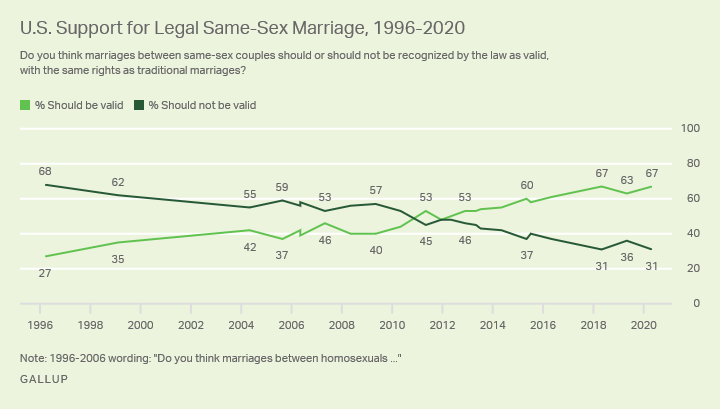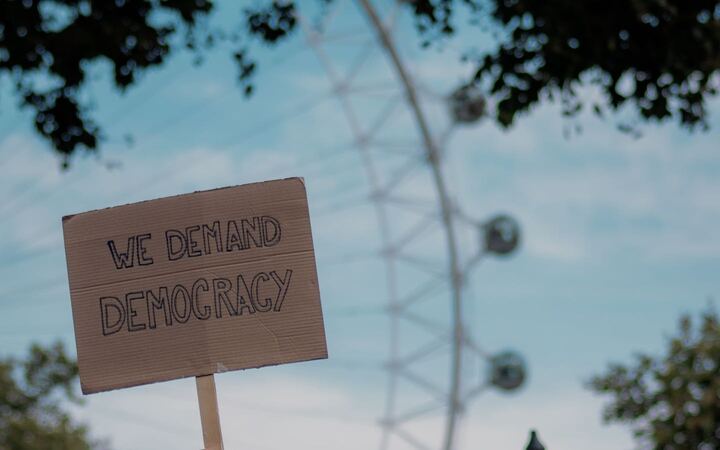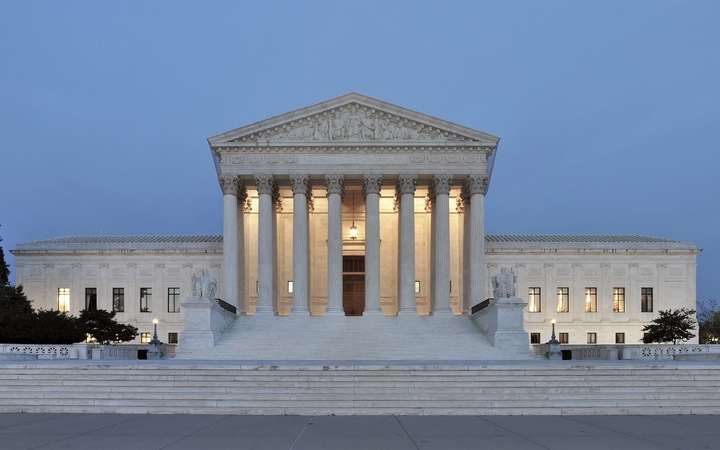It’s tempting for the moderate to strut. Isn’t it enlightened to see truth in both sides? To calmly rise above the squabbling?
But there’s a strong argument against moderation: Public opinion has been evolving for hundreds of years. Many things that are moderate today were “extreme” very recently. Isn’t it quite a coincidence that right now happens to be the time in history when public opinion got it right?
I guess that’s possible. But isn’t it more likely that moderates are being swept along by history—positioning themselves near the middle of public opinion and then rationalizing it afterward?
As a moderate-ish person, this worries me. Yet, I can’t shake the idea that moderation is good, and the world would be better with more moderates, and that moderation often is more enlightened.
Note: It’s easy to defend “heterodox” people who have a mixture of views from different parts of the political spectrum. But I want to make a more difficult argument—I want to defend people who really are “in the middle”.
1.
One argument for moderation is that the right and the left are better at understanding different things.
Right-leaning people are better at seeing humanity’s flaws. They better appreciate how existing systems (family, the church, social taboos) have been formed by those flaws and better sense the dangers of fooling with those systems. They are better at seeing how seemingly harsh policies (competition, markets) may ultimately serve the greater good.
Left-leaning people are better at seeing how systems can chew people up and be cruel with little real purpose. They are better at seeing that harsh policies are… harsh. They have a more expansive sense of what is possible and are more willing to entertain that things could be different.
Is any of this in conflict? Not really. But when two teams spend their time practicing with different mental models, they end up better at different stuff.
Both sides have weaknesses, too. The left’s classic mistakes include “X is expensive, therefore let us subsidize X” and an eagerness to tear down Chesterton’s fence first and worry about the consequences later. The right tends to see the current social order as fundamentally true and just and natural, rather than as an accumulation of hacks and compromises that emerged from game theory over the generations and tends to defend that social order even when conditions have changed.
But the biggest flaw of the left and the right is the same–the tendency to become immune to correct arguments from the other side. Avoiding this looks a lot like moderation.
2.
A second argument for moderation is that the world is complicated.
When I was younger, I thought all drugs should be legal. My argument was: What right does society have to control what chemicals you put into your own body? If drugs cause you to steal or whatever, that’s already illegal. But it’s tyrannical to criminalize private, victimless actions. I was proud of this argument, which felt very principled.
But at some point, I did a thought experiment: What if there was a new drug so addictive that everyone who tries it immediately drops their old life and devotes themselves to robbing and murdering people to get money to buy more drugs? Would I stand by my principles and fight prohibition while I watched society collapse?
Nowadays, my thinking on drugs is more like this:
- It is better to respect bodily autonomy.
- When the government prohibits voluntary transactions (like buying drugs), problems often arise (like contract disputes being resolved with violence).
- Drugs destroy some people’s lives.
- Many of those people would prefer a society where drugs were unavailable.
- Some of those people also impose huge costs on the rest of society.
- All of the above points apply to alcohol too.
- Much of the public health impact of drug legalization depends on how much the newly legal drugs are substitutes versus complements for existing legal drugs, which is hard to guess.
- Trying to keep drugs out of the hands of addicts ends up causing some people to suffer horrendous physical pain.
- Many people like drugs and would use legal drugs with restraint.
- It’s hard to say how well we can mitigate the harms of drugs through better mental health treatments or education or social norms.
- It’s hard to say if more effective prohibition policies could disrupt drug supply without creating as much violence and organized crime and intrusions on dignity.
- New synthetic drugs are likely to be invented in the coming years, some of which might have startling effects and be easy to make and transport.
- It’s impossible to predict what things will look like in 50 or 100 years.
So my position is that it seems… complicated? I still lean towards legalization, but it seems sensible to go slowly and study the impact of different policies. If someone disagrees, I don’t lecture them about Liberty.
My point is just that we can’t sit around and design a new social order. Everything has tradeoffs. Counter-intuitive effects are common. Remember when the North American Free Trade Agreement of 1994 was expected to lead to jobs moving to Mexico but instead, low-cost American agriculture put millions of rural Mexican farmers out of work and vastly increased illegal immigration into the US? Or, remember when New Jersey in 2002 signed a law that said that once smart guns (that only fire when they recognize they are in their owner’s hand) were available anywhere in the US, then only smart guns could be sold in New Jersey and as a result, all gun manufacturers refused to bring any smart guns to market in the US?
It’s odd how so many people are sure the US could implement single-payer health care or replace all social programs with a universal basic income or eliminate the corporate income tax or withdraw from all military bases around the world or have open borders, and they know exactly what would happen, and everything would be fine. Where does this confidence come from?
But take someone who doesn’t have this confidence—their world model has lots of uncertainty, and they favor incrementalism and empiricism. The thing that really defines them is epistemic humility, but they look a lot like a moderate.
3.
A third argument is that moderation can be strategic. Maybe it’s not that moderates are being swept along by history, but that they are the ones doing the sweeping.
This argument makes me uncomfortable, but try this experiment: Say you agree with the current majority opinion in Western Europe and the Algosphere that gay marriage should be legal. Now, say you’re sent back in time to the US in 1960, where same-sex sexual behavior was a felony in every US state, punishable by lengthy imprisonment or hard labor. Should you advocate for gay marriage?
I don’t think the answer is obvious.
You might remember that when Obama ran for president in 2008, he said that he opposed gay marriage for religious reasons. Starting in 2010, he started winking at journalists that his thinking was “evolving”, and in 2012, he announced that he supported gay marriage.
Why 2012? Well…

It seems likely that the reason Obama opposed gay marriage in 2008 was that he wanted to be president.
It’s easy to criticize politicians for shifting their positions based on public opinion. But of course, there are lots of people who refuse to do that. They’re called people who don’t win elections.
If you look back, you’ll see that when running in 2008, Obama opposed gay marriage, yes, but he supported (1) civil unions with all of the rights of marriage (2) allowing states to recognize gay marriages from other states (3) adoption by gay parents (4) outlawing discrimination on sexual orientation (5) repealing the ban on openly gay troops in the military.
It looks a lot like Obama positioned himself as close to supporting gay marriage as he could, while still being able to win the election. Was that good or bad for the cause of gay marriage? Well, his opponent in 2008, John McCain, opposed all of (1)-(5) above.
Maybe thinking that Obama changed his position because of public opinion gets it backward—maybe public opinion changed because people like Obama gradually normalized more gay-friendly policies.
Extreme ideas become mainstream incrementally, by sort of creeping up a ladder where gradually higher-status people are willing to talk about them. This is a game that we all play. If you have an extreme view, it’s human nature to calibrate when/how you talk about it. And it’s amazing how much easier it is to accept/dismiss views that you perceive as high/low status. Even if you decide you want to ignore the game theory that pushes you to behave this way, your evolution-tuned instincts may not cooperate.
Of course, working at the “bottom rung” of the ladder can be good. When Peter Singer wrote Animal Liberation in 1975, the ideas were crazy, but he had a lot of impact and I doubt a more moderate stand would have helped. So I don’t claim that positioning oneself near median public opinion is always most effective, just that it often is.
4.
There’s another angle to strategy. There are lots of things that are important but don’t have much less/right valence. You can have an “extreme” opinion about them but still be seen as moderate. Here some of my opinions:
- Particulate levels in subways make a lot of people sick and could be fixed at low cost except no one cares.
- American inter-city rail (Amtrak) should be led by an executive with experience running a modern high-quality inter-city passenger rail system; since no such system exists in the US, this person will probably come from Europe.
- Current institutions for science and science funding aren’t great at maximizing progress and there should be much more experimentation with alternatives.
- Since anyone could die, it’s absurd that voters don’t know who the vice-presidential nominee will be when voting for presidential nominees in primaries.
- Regardless of the party in power, the Farm Bill that comes out every five years is always a grotesque carnival of crony capitalism and giveaways that distorts not just the economy but the food that goes into people’s bodies.
Issues like this don’t get much attention, perhaps because people get mind-killed by polarized arguments, and so polarized debates suck up all the oxygen. Yet, if you try to convince someone of something like the above, your odds are probably 10x higher than the things people more commonly debate. That is, if you try to rank issues by
EFFECTIVENESS = IMPORTANCE x LEVERAGE,
then the most effective issues will often be non-polarized— you can accomplish more by “pulling the rope sideways”.
Beyond that, people who are perceived to be moderate have higher leverage in general. Why don’t I write about the latest thing everyone else is angry about this week? OK, mostly because that sounds horrible and I have nothing interesting to say. But partly because I’m afraid that you’ll see me as having a partisan tilt and then filter everything I say through those expectations. Of course, I couldn’t blame you for doing that—in a Bayesian sense, it’s correct. But by the same token, you can’t blame other people for strategic silence.













